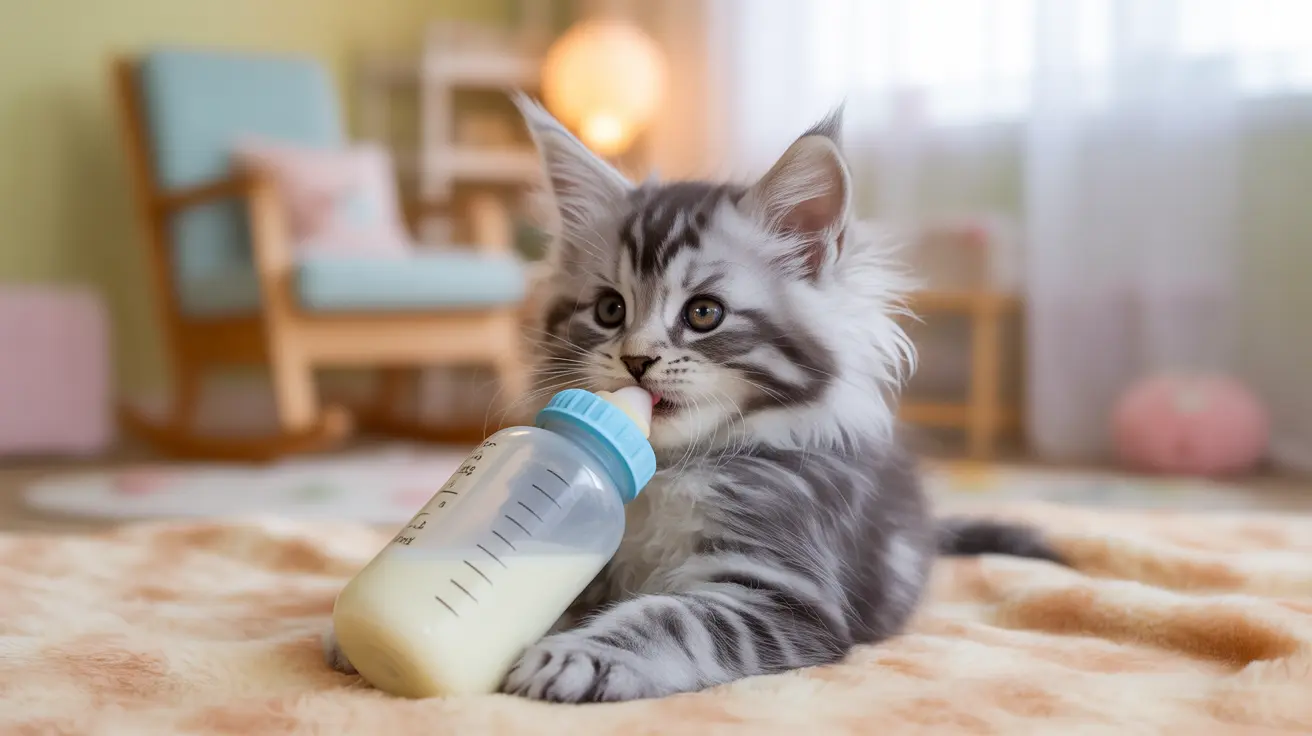Introduction
Finding yourself caring for abandoned kittens can be both rewarding and challenging. These tiny, vulnerable creatures require specific nutrition and careful attention to survive and thrive during their crucial early weeks of life. Understanding what to feed abandoned kittens is essential for their healthy development and long-term well-being.
In this comprehensive guide, we'll explore the proper nutrition, feeding techniques, and care requirements for orphaned kittens, ensuring you have the knowledge needed to give these little ones the best chance at survival.
Choosing the Right Kitten Formula
Commercial kitten milk replacers (KMR) are the gold standard for feeding abandoned kittens. These specially formulated products closely mimic mother's milk, providing the precise balance of nutrients kittens need for healthy growth and development.
Never substitute regular cow's milk or goat's milk for proper kitten formula. These alternatives lack essential nutrients and can cause severe digestive issues, leading to dehydration and malnutrition. Stick to veterinary-approved brands like KMR or Fox Valley Day One Formula.
Proper Feeding Schedule and Portions
Feeding frequency varies based on the kitten's age:
- 0-2 weeks: Feed every 2-3 hours, including overnight
- 2-4 weeks: Feed every 3-4 hours
- 4+ weeks: Feed every 4-6 hours
Calculate portions based on the kitten's weight: approximately 8ml of formula per ounce of body weight daily, divided into multiple feedings. Always warm formula to body temperature (around 100°F) before feeding.
Safe Feeding Techniques
Position is crucial when bottle-feeding kittens. Keep them in a natural, belly-down position - never feed them on their backs like human babies. Use specialized kitten nursing bottles with appropriate flow rates to prevent aspiration.
After each feeding, gently burp the kitten by patting their back. This helps prevent gas buildup and digestive issues. Clean and sterilize all feeding equipment between uses to prevent bacterial growth.
Transitioning to Solid Foods
Around 3-4 weeks of age, kittens can begin the weaning process. Start by offering a gruel made from kitten formula mixed with high-quality wet kitten food. Gradually decrease the amount of formula while increasing the food's consistency as the kitten adapts.
Make the transition gradual to prevent digestive upset. By 6-7 weeks, most kittens should be fully weaned and eating solid kitten food.
Additional Care Requirements
Proper feeding is just one aspect of caring for abandoned kittens. Maintain a warm environment (85-90°F for newborns), and stimulate young kittens to eliminate after each feeding using a warm, damp cloth. Monitor weight gain daily - healthy kittens should gain 10-15 grams per day.
Frequently Asked Questions
What is the best type of milk replacer to feed abandoned kittens, and why can't I use cow's or goat's milk?
Commercial kitten milk replacers are specifically formulated to match the nutritional composition of mother cat's milk. Cow's or goat's milk lack essential nutrients and contain inappropriate levels of fat and lactose, which can cause diarrhea and malnutrition in kittens.
How often and how much should I feed an orphaned kitten at different ages during the first weeks?
Newborns need feeding every 2-3 hours, while 2-4 week old kittens can go 3-4 hours between feedings. The amount should be approximately 8ml of formula per ounce of body weight daily, divided into multiple feedings.
What are the proper techniques for bottle-feeding abandoned kittens to prevent choking or aspiration?
Always feed kittens in a natural, belly-down position. Use proper kitten nursing bottles with slow-flow nipples, and ensure formula is warmed to body temperature. Never squeeze formula into their mouths; let them suckle at their own pace.
When and how should I start weaning orphaned kittens onto solid food?
Begin weaning around 3-4 weeks of age by introducing a gruel made from kitten formula and wet kitten food. Gradually thicken the mixture and reduce formula content over several weeks until the kitten is eating solid food.
What signs of feeding problems in abandoned kittens require urgent veterinary care?
Seek immediate veterinary attention if you notice lethargy, poor weight gain, diarrhea, bloating, vomiting, or difficulty breathing. Also watch for signs of dehydration, such as tacky gums or skin that doesn't quickly return to position when gently pinched.






